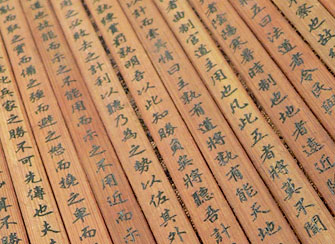Andrew Romanov

Interviewer: “So you’re looking for an executive position that comes with a lot of respect and a corner office.”
Interviewee: “Yes, I am.”
Interviewer: “You must read the ‘Financial Times’ and ‘The Wall Street Journal’—the latest news about business and finance.”
Interviewee: “Yes, but I draw most of my inspiration from a far more unexpected source.”
Interviewer: “Bloomberg?”
Interviewee: “No, an ancient book of military called ‘The Art of War,’ written by the legendary Chinese general Sun Tzu.”
Interviewer: “Wow, that is unexpected!”
I expect scenarios like these happen more often than one might expect. Sun Tzu’s military treatise “The Art of War,” which was written about 2,500 years ago, has become an inspiration for leaders worldwide. Although it has been enormously popular in East Asia for millennia, its translation into European languages has allowed it to spread to the West and influence business tactics and legal strategy in addition to its original and intended topic of military thought.

“The Art of War” is foremost a guide to military leadership, of which can easily be applied to management. Despite containing advice on when to behead disobedient officers and on how to set enemies on fire, it has enduring appeal among business leaders and executives. Workplaces are already saturated with violent language, right? (see: “slammed,” “tied up,” “takeover,” etc.)
“Know the enemy, know yourself; your victory will never be endangered.”
With quotes like these, there is no use for ambiguity or gray areas. Sun Tzu is cut-and-dry, decisive and blunt—leadership qualities prized in today’s offices.
Sun Tzu might have been pleased that his book found traction beyond the battlefield. Despite military leaders like Douglas MacArthur using it for inspiration, people diverse as Chinese leader Mao Zedong and NFL coach Bill Belichick are also protégés of Sun Tzu and his teachings. Anyone can use it.


Andrew,
Your insightful presentation yesterday and this subsequent blog post have persuaded me to read this book, presumably authored by Sun Tzu. Wondering why I hadn’t rummaged through it earlier!
Not frightening to have it as my late dinner this Christmas break.
Hey Andrew!
I’ve never read the book cover to cover but what I have read is quite good. And while I agree it is very cut and dry I also think many of his teachings can be applied to many facets of life. Your class presentation was great and you could tell you really enjoyed the book!